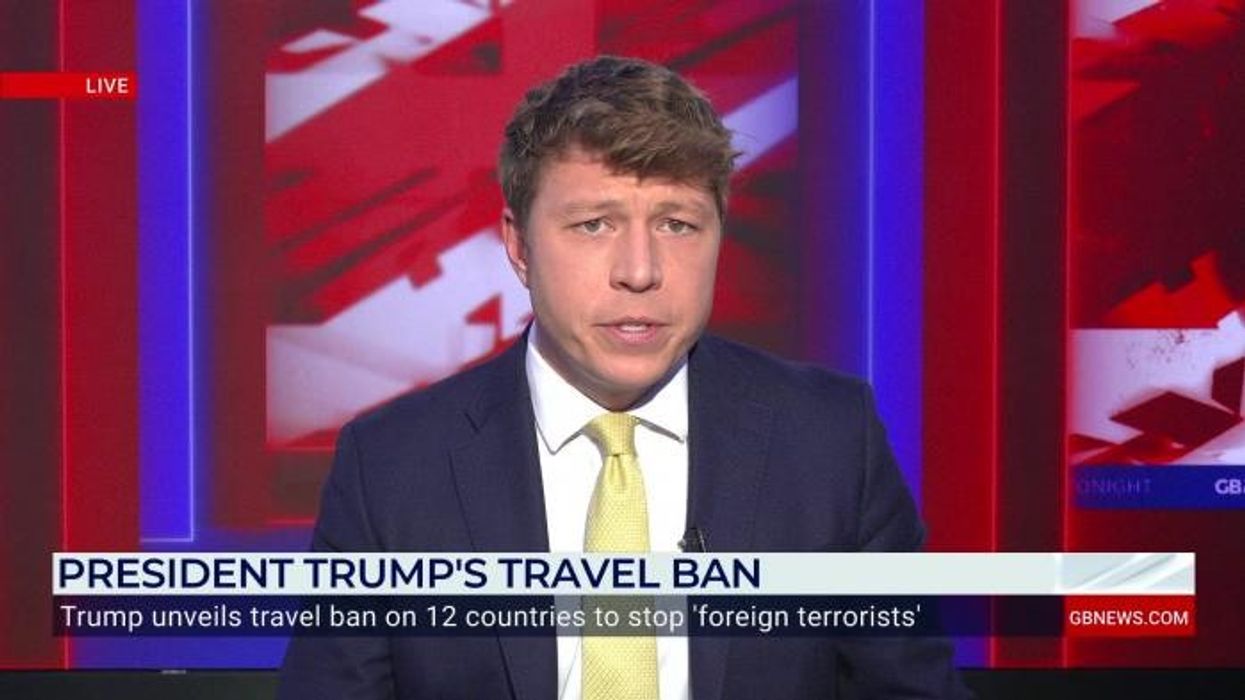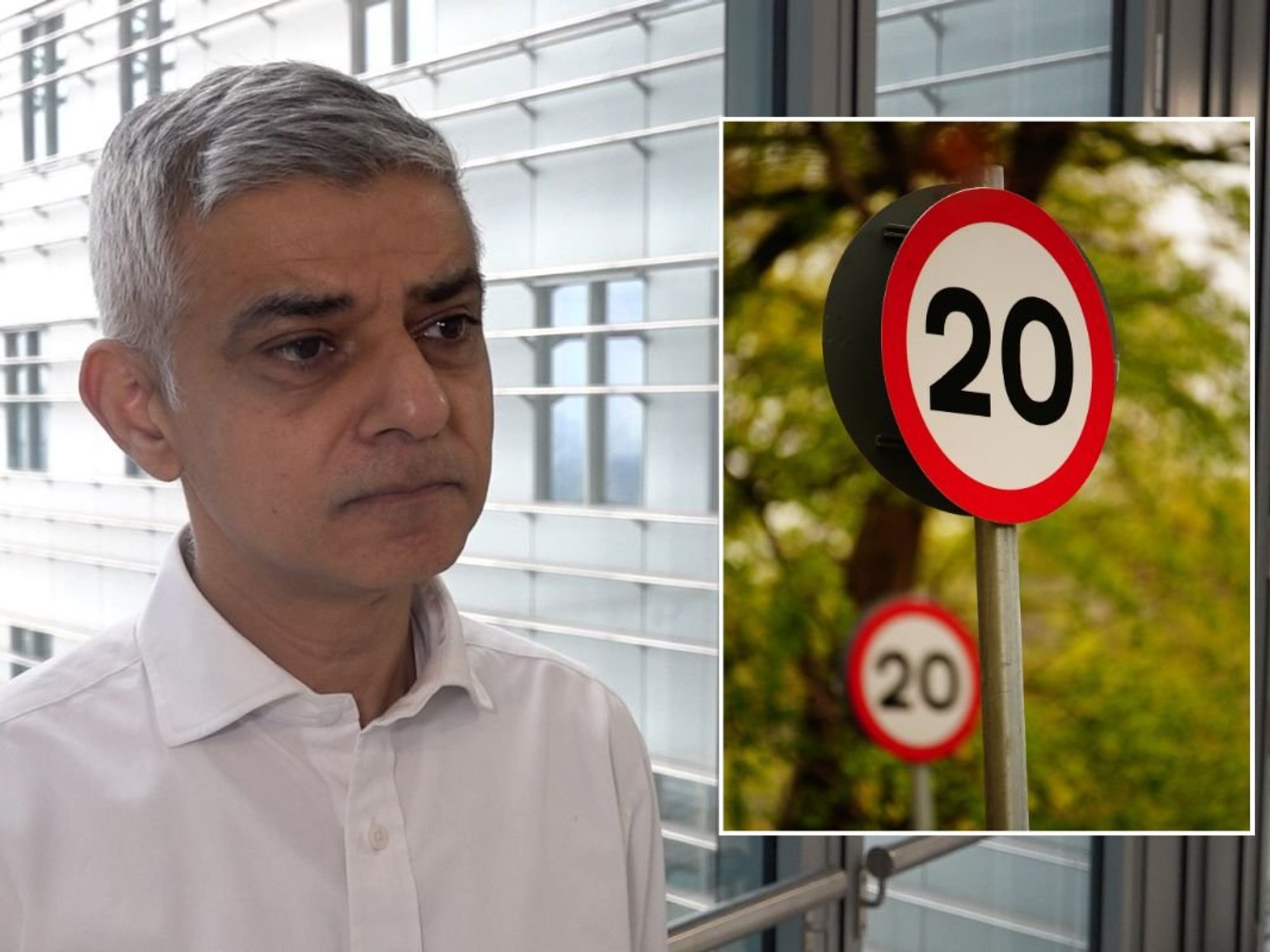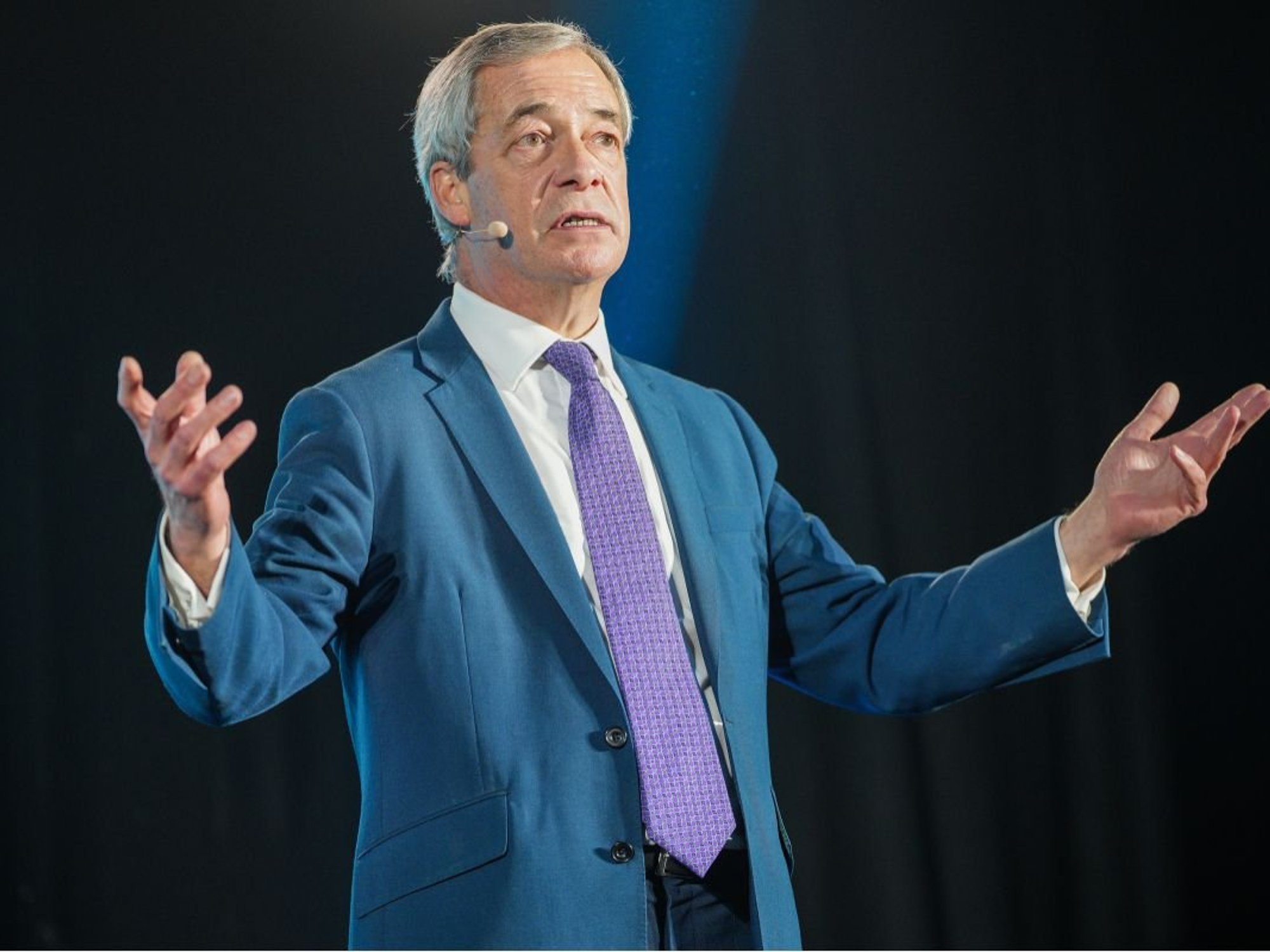In one stroke of a pen, Trump has shown America is no dumping ground - and Britain is a doormat - Lee Cohen
OPINION: Unlike Trump’s insistence on rigorous vetting, Britain’s current approach to illegal immigration leaves communities vulnerable
Don't Miss
Most Read
Trending on GB News
Donald Trump’s travel ban, announced on June 4, 2025, restricting entry from 12 high-risk countries and imposing partial limits on seven others, is a fulfilment of his commitment to make America more secure.
Across the Atlantic, under Keir Starmer, Britain appears to be rolling out the red carpet for thousands of unvetted migrants. Trump’s clarity and resolve offer a stark contrast—and a lesson in courageous leadership.
Trump’s travel ban is not a haphazard policy but a targeted measure rooted in pragmatism. By focusing on nations with deficient vetting systems, high visa overstay rates, or inadequate cooperation on identity and threat information, the policy addresses real vulnerabilities.
Countries like Afghanistan, Iran, and Yemen, where governance failures or hostility toward the West prevail, pose tangible risks. The ban’s partial restrictions on nations like Cuba and Venezuela further demonstrate a nuanced approach, balancing security with practicality.
This is not about prejudice but about ensuring that those entering the United States do not exploit systemic weaknesses to cause harm. Trump’s supporters rightly see this as a fulfilment of his campaign pledge to prioritise American lives over unchecked immigration—a promise he has kept since his first term, when similar measures were upheld by the Supreme Court in 2018.
 In one stroke of a pen, Trump has shown America is no dumping ground - and Britain is a doormat - Lee Cohen |
In one stroke of a pen, Trump has shown America is no dumping ground - and Britain is a doormat - Lee Cohen | Getty Images
Contrast this with Britain’s current trajectory under Keir Starmer’s Labour government. Since Labour took power, illegal Channel crossings have surged, with over 30,000 migrants arriving in 2024 alone, many from conflict zones or nations with extremist ideologies.
Starmer’s policies, including scrapping the Rwanda deportation plan and easing restrictions on asylum processing, have been criticised as incentivising dangerous journeys and overwhelming border systems. Unlike Trump’s insistence on rigorous vetting, Britain’s current approach leaves communities vulnerable to potential threats. The Home Office’s own data suggests that vetting for small boat arrivals is often cursory, with limited ability to verify identities or backgrounds. This is not compassion—it’s a gamble with Britain’s safety.
Trump’s policies reflect a broader principle: a nation’s first duty is to its citizens. By restricting entry from countries where extremist ideologies, such as radical Islamism or state-sponsored communism, flourish, he seeks to shield America from importing threats that could destabilise society. This is not racism but rationality—a recognition that cultural and ideological compatibility matters.
In the US, concerns about visa overstays and terrorism risks are not abstract; they stem from real incidents, like the 2015 San Bernardino shooting, where lax oversight failed to prevent tragedy. Trump’s ban is a proactive step to prevent such risks, ensuring that immigration serves the nation rather than undermines it.
In Britain, however, Starmer’s government appears less attuned to these anxieties. While the UK does have formal vetting and security checks in place for asylum seekers, the sheer scale of recent arrivals and the pressures on the system risk overwhelming these safeguards. There is growing public concern that, even with existing procedures, individuals with incompatible values or extremist ties could slip through the cracks, raising questions about how effectively British values of freedom, democracy, and the rule of law are being protected.
Many Britons voice frustration that their government’s response to rising crime and social tensions in areas with high migrant populations seems to involve more bureaucracy rather than decisive action.
Trump’s approach also resonates because it asserts national sovereignty. Controlling borders is not just about security but about affirming a country’s right to decide who enters its gates. In Trump’s America, entry is a privilege, not a right—a view that resonates with many Britons tired of seeing their borders treated as porous. Trump’s ban sends a clear message: America will not be a dumping ground for the world’s problems. His supporters, from media figures to grassroots voters, praise this as common-sense governance, rooted in the belief that a nation must protect its own before extending generosity to others.
For Britons, the contrast is stark. Starmer’s policies seem to favour EU optics over domestic welfare, welcoming migrants without ensuring they align with Britain’s values or contribute to its prosperity. The result is a strained NHS, overburdened schools, and communities grappling with integration challenges.
As an American, I look at Britain’s rich history—its defiance in the face of existential threats, and wonder when its leaders will rediscover that resolve. Trump’s clarity in putting America first is a model of leadership that Britain sorely lacks.
It is not racist to protect a nation from extremist ideologies or to demand that newcomers respect its laws and culture. Trump’s travel ban is a rational response to real threats, grounded in data and experience. Britain, by contrast, risks becoming a cautionary tale of what happens when leaders prioritise ideology over pragmatism. I long for the day when the UK once again elects leaders with the courage to put Britain first.
More From GB News











